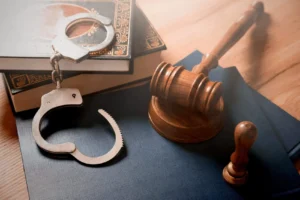Car Accident Attorney in Phoenix, Arizona: Essential Legal Guidance for Injury Claims and Insurance Disputes
Individuals involved in vehicle collisions frequently ask, “When do I need a car accident attorney in Phoenix, Arizona, and how does Arizona’s legal system protect my rights after a crash?” Unlike states with no-fault insurance systems, Arizona operates under a fault-based system where the driver responsible for the accident bears financial responsibility for damages, making skilled legal representation crucial for protecting your interests and maximizing compensation.
Phoenix car accident cases involve complex interactions between Arizona state law, local traffic regulations, and insurance company procedures that can significantly impact the outcome of your claim. The Valley’s unique traffic patterns, extreme weather conditions, and rapid population growth create specific challenges that require attorneys with deep knowledge of both Arizona law and local court procedures.
Understanding your rights and the legal process empowers you to make informed decisions about representation while protecting your financial interests. Arizona’s comparative negligence system and two-year statute of limitations create specific timeframes and legal standards that affect every aspect of your case from initial insurance claims through potential trial proceedings.
What Makes Phoenix Car Accident Cases Unique Under Arizona Law?
Arizona state law governs car accident cases through a fault-based system that holds negligent drivers responsible for damages they cause to others. This approach differs significantly from no-fault states where each driver’s insurance covers their own damages regardless of who caused the accident.
The fault-based system means that injury victims can pursue full compensation from the at-fault driver’s insurance company, including medical expenses, lost wages, pain and suffering, and property damage. However, Arizona’s comparative negligence rules reduce compensation based on each party’s percentage of fault for the accident.
Phoenix traffic conditions create unique challenges for accident cases, with major thoroughfares like Interstate 10, Interstate 17, and Loop 101 experiencing high-speed collisions that result in severe injuries. The city’s grid system and numerous construction zones contribute to specific types of accidents that require specialized legal knowledge.
Arizona’s extreme heat affects vehicle performance and driver behavior, with tire blowouts, mechanical failures, and heat-related health issues contributing to accidents that may involve product liability or multiple defendants. These factors require attorneys who understand both the technical aspects of vehicle failures and the legal implications of environmental factors.
Local court procedures in Maricopa County Superior Court create specific requirements for case filing, discovery, and trial preparation that differ from other Arizona counties. Phoenix attorneys familiar with local judges, court staff, and procedural preferences can navigate these systems more effectively than out-of-state counsel.
How Does Arizona’s At-Fault System Affect Your Car Accident Claim?
Arizona’s at-fault system requires establishing negligence to recover damages, meaning that personal injury lawyers must prove that another driver breached their duty of care and caused your injuries. This system provides opportunities for full compensation but requires skilled legal representation to navigate insurance company disputes and litigation.
The comparative negligence rule in Arizona allows recovery even when you bear partial responsibility for the accident, with your compensation reduced by your percentage of fault. For example, if you were 20% at fault and suffered $100,000 in damages, you would recover $80,000 from the other party’s insurance.
Insurance coverage requirements in Arizona mandate minimum liability limits of $25,000 per person and $50,000 per accident for bodily injury, plus $15,000 for property damage. These minimum amounts often prove inadequate for serious injuries, making underinsured motorist coverage crucial for protecting your interests.
Uninsured motorist coverage provides protection when at-fault drivers lack insurance or sufficient coverage to pay for your damages. Arizona’s significant population of uninsured drivers makes this coverage essential for protecting your family’s financial security after serious accidents.
Settlement negotiations in fault-based systems often involve complex disputes about responsibility, damages, and insurance coverage limits. Experienced attorneys understand how to present evidence effectively and negotiate with insurance adjusters who are trained to minimize payouts to injured parties.
When Do You Need Legal Representation for Phoenix Car Accidents?
Serious injuries requiring extensive medical treatment, surgery, or long-term rehabilitation create complex cases that benefit from professional legal representation. Insurance companies often dispute the necessity and cost of medical treatment, making attorney involvement crucial for protecting your rights to appropriate care.
Disputed liability cases where insurance companies deny responsibility or claim shared fault require skilled legal analysis and evidence presentation. Arizona’s comparative negligence system makes these disputes particularly important since your compensation depends on the percentage of fault assigned to each party.
Multiple vehicle accidents involving commercial trucks, buses, or other complex scenarios create opportunities for various parties to share responsibility while also increasing the potential for significant recovery. These cases often involve multiple insurance policies and complex legal theories requiring specialized expertise.
Wrongful death cases arising from fatal accidents require immediate legal intervention to preserve evidence, protect family interests, and comply with specific legal requirements for these claims. Arizona’s wrongful death statute provides specific remedies for surviving family members that require skilled legal representation.
Insurance bad faith situations where insurance companies unreasonably deny claims, delay investigations, or offer inadequate settlements may require legal action to protect your rights. Arizona law provides specific remedies for insurance bad faith that can result in additional damages beyond your original claim.
What Should You Look for in a Phoenix Car Accident Attorney?
Trial experience represents a crucial qualification for car accident attorneys since insurance companies often offer more favorable settlements to attorneys they know will take cases to trial when necessary. Attorneys with substantial trial experience understand how to prepare cases effectively and present compelling arguments to juries.
Local knowledge of Phoenix courts, judges, and legal procedures provides significant advantages in case preparation and strategy development. Attorneys who regularly practice in Maricopa County Superior Court understand local preferences and can navigate the system more efficiently than out-of-state counsel.
Specialization in personal injury law ensures that your attorney possesses the specific knowledge and experience necessary to handle the complex medical, technical, and legal issues that arise in serious accident cases. General practice attorneys may lack the specialized expertise required for optimal case outcomes.
Resources for case development including access to accident reconstruction experts, medical professionals, and investigative services can make the difference between successful and unsuccessful case outcomes. Complex accident cases often require significant investment in expert testimony and technical analysis.
Communication skills and responsiveness to client needs ensure that you remain informed about your case progress and can make educated decisions about settlement offers and litigation strategies. Attorneys who maintain regular communication help reduce stress and uncertainty during difficult recovery periods.
How Do Arizona Traffic Laws Impact Your Car Accident Case?
Arizona Revised Statutes establish specific traffic regulations that create standards for driver behavior and define negligence in accident cases. Violations of these statutes can provide evidence of negligence that supports your compensation claim.
Speed limits and speeding violations play crucial roles in accident cases, with Arizona’s aggressive enforcement creating substantial evidence for establishing fault. Excessive speed for conditions, even when within posted limits, can constitute negligence under Arizona law.
Right-of-way violations at intersections cause numerous Phoenix accidents and provide clear evidence of negligence when properly documented. Arizona’s specific right-of-way rules create legal standards that attorneys can use to establish fault and support compensation claims.
Following distance requirements under Arizona law establish specific standards for safe driving that can provide evidence of negligence in rear-end collisions. These cases often involve disputes about sudden stops, road conditions, and driver reaction times that require skilled legal analysis.
Distracted driving laws in Arizona prohibit texting while driving and create specific penalties for violations. These laws provide important evidence for establishing negligence when distracted driving contributes to accidents.
What Types of Compensation Are Available in Phoenix Car Accident Cases?
Medical expenses including past and future treatment costs represent the most common type of compensation in car accident cases. Arizona law allows recovery for all reasonable and necessary medical treatment related to accident injuries, including surgery, rehabilitation, and ongoing care.
Lost wages and diminished earning capacity provide compensation for the economic impact of injuries on your ability to work and support your family. These damages include both immediate lost income and future earning capacity reductions caused by permanent injuries.
Pain and suffering damages compensate for the physical pain, emotional distress, and reduced quality of life resulting from accident injuries. Arizona law allows substantial pain and suffering awards in cases involving serious injuries and permanent disabilities.
Property damage recovery includes vehicle repair or replacement costs, personal property damage, and rental car expenses during repairs. Arizona law requires that property damage be restored to pre-accident condition or that you receive fair market value for total losses.
Punitive damages may be available in cases involving particularly egregious conduct such as drunk driving or extreme recklessness. These damages serve to punish wrongdoers and deter similar conduct while providing additional compensation for injury victims.
How Does the Legal Process Work for Phoenix Car Accident Cases?
Initial investigation involves gathering evidence, interviewing witnesses, and documenting the accident scene before crucial evidence disappears. Experienced attorneys understand the importance of immediate action to preserve evidence and protect client interests.
Medical documentation requires careful coordination with healthcare providers to ensure that all injuries are properly diagnosed, treated, and documented for insurance and legal purposes. The relationship between medical treatment and legal claims requires skilled management to protect both health and legal interests.
Insurance negotiations involve complex discussions with multiple insurance companies about coverage, liability, and damages. These negotiations require understanding of insurance law, policy interpretation, and negotiation strategies that protect client interests while pursuing fair settlements.
Discovery process in litigation involves exchanging information, taking depositions, and gathering evidence from all parties involved in the accident. This formal legal process requires compliance with specific rules and deadlines that affect case outcomes.
Trial preparation includes expert witness selection, exhibit preparation, and strategy development for presenting your case effectively to a jury. Even cases that settle before trial benefit from thorough preparation that demonstrates your attorney’s readiness to proceed to trial if necessary.
What Common Mistakes Should You Avoid After Phoenix Car Accidents?
Admitting fault at the accident scene can harm your case even when you believe you may have contributed to the accident. Arizona’s comparative negligence system means that fault determinations should be left to professional investigation rather than immediate admissions.
Delayed medical attention can harm both your health and your legal case, as insurance companies often argue that delayed treatment indicates injuries were not serious or were not caused by the accident. Seeking immediate medical attention protects both your health and your legal interests.
Inadequate documentation of the accident scene, vehicle damage, and injuries can make it difficult to prove your case later. Taking photographs, gathering witness information, and maintaining detailed records provides crucial evidence for your attorney.
Accepting quick settlement offers from insurance companies often results in inadequate compensation since the full extent of injuries and damages may not be apparent immediately after accidents. Consulting with an attorney before accepting any settlement offers protects your interests.
Failing to preserve evidence such as damaged vehicles, clothing, or other physical evidence can harm your case by eliminating important proof of the accident’s impact and the other party’s negligence.
How Do Insurance Companies Operate in Arizona Car Accident Cases?
Claims investigations by insurance companies focus on minimizing payouts rather than ensuring fair compensation for injury victims. Understanding this reality helps you prepare for the challenges of dealing with insurance adjusters who are trained to protect their company’s financial interests.
Settlement tactics often involve quick offers that seem reasonable but prove inadequate when compared to the full extent of damages including future medical expenses, lost earning capacity, and pain and suffering. Insurance companies prefer quick settlements that eliminate their long-term financial exposure.
Medical surveillance programs used by insurance companies may involve hiring private investigators to monitor your activities and look for evidence that contradicts your injury claims. Understanding these practices helps you avoid activities that could be misinterpreted and harm your case.
Independent medical examinations arranged by insurance companies often involve doctors who are paid to minimize injury claims rather than provide objective medical opinions. Preparing for these examinations and understanding their purpose helps protect your interests.
Litigation strategies employed by insurance companies include delaying tactics, procedural challenges, and aggressive defense approaches designed to wear down injury victims and force inadequate settlements. Experienced attorneys understand these tactics and can counter them effectively.
What Role Does Evidence Play in Phoenix Car Accident Cases?
Accident reconstruction involves analyzing physical evidence, vehicle damage, and witness statements to determine how accidents occurred and who was at fault. This scientific approach provides objective evidence that can overcome disputes about liability.
Medical evidence requires careful coordination between legal and medical professionals to ensure that all injuries are properly documented and their relationship to the accident is clearly established. This evidence forms the foundation for compensation claims.
Witness testimony from people who observed the accident can provide crucial evidence about fault, driver behavior, and the impact of the collision. Experienced attorneys know how to locate, interview, and prepare witnesses for depositions and trial testimony.
Electronic evidence from vehicles, cell phones, and surveillance systems increasingly provides objective evidence about driver behavior and accident circumstances. Understanding how to obtain and analyze this evidence requires technical expertise and legal knowledge.
Expert testimony from accident reconstruction specialists, medical professionals, and economic experts helps explain complex technical issues to juries and insurance companies. The quality and credibility of expert witnesses often determines case outcomes in serious injury cases.
How Do Phoenix Traffic Patterns Affect Accident Cases?
Rush hour congestion on major Phoenix freeways creates specific accident patterns involving multiple vehicles and complex liability issues. Understanding these patterns helps attorneys develop effective strategies for multi-vehicle accident cases.
Construction zones throughout the Phoenix metropolitan area create hazardous driving conditions that can shift liability between drivers and construction companies. These cases often involve complex analysis of warning signs, traffic control devices, and construction safety procedures.
Weather-related accidents during monsoon season involve unique challenges related to visibility, road conditions, and driver behavior during severe weather events. Arizona law requires drivers to adjust their behavior for weather conditions, creating specific legal standards for these cases.
Tourist and seasonal resident drivers unfamiliar with Phoenix traffic patterns contribute to accidents involving out-of-state drivers and insurance companies. These cases may involve jurisdictional issues and different insurance coverage requirements.
Commercial vehicle traffic on major Phoenix transportation corridors creates opportunities for serious accidents involving trucks, buses, and other commercial vehicles. These cases often involve federal regulations, commercial insurance policies, and complex liability issues.
What Are the Time Limits for Filing Car Accident Claims in Arizona?
Statute of limitations in Arizona provides two years from the date of the accident to file a personal injury lawsuit, though insurance claims should be filed much sooner to comply with policy requirements. Missing this deadline can result in complete loss of your right to compensation.
Insurance policy deadlines typically require immediate notice of accidents and may impose specific timeframes for filing claims and providing documentation. Understanding these requirements helps ensure that you don’t inadvertently waive your insurance coverage.
Government claim requirements apply when accidents involve city, county, or state vehicles and may require special notice procedures and shorter deadlines. These cases require immediate legal attention to comply with specific procedural requirements.
Discovery rule exceptions may extend limitation periods in cases involving delayed discovery of injuries or hit-and-run accidents where the at-fault driver is not immediately identified. These complex legal issues require skilled legal analysis to protect your rights.
Wrongful death claims have specific limitation periods that may differ from personal injury claims and require immediate legal action to preserve family rights to compensation. These cases involve complex legal requirements that require experienced legal representation.
How Do You Choose the Right Car Accident Attorney in Phoenix?
Consultations and case evaluation provide opportunities to assess attorney knowledge, communication skills, and commitment to your case. Most experienced car accident attorneys offer free consultations to evaluate your case and explain your legal options.
Fee structures in personal injury cases typically involve contingency arrangements where attorneys receive payment only if they recover compensation for you. Understanding fee agreements and cost responsibilities helps you make informed decisions about representation.
Case management approach varies significantly among attorneys, with some handling high-volume practices while others focus on more personalized attention to individual cases. Consider which approach best serves your needs and preferences.
Professional credentials including board certifications, professional association memberships, and peer recognition provide evidence of attorney competence and reputation within the legal community. These credentials can indicate the quality of representation you can expect.
Client testimonials and case results provide insights into attorney effectiveness and client satisfaction. While past results don’t guarantee future outcomes, they provide valuable information about attorney capabilities and approach to client service.
How Do Phoenix Car Accident Attorneys Handle Insurance Bad Faith Cases?
Insurance bad faith occurs when insurance companies unreasonably deny claims, delay investigations, or offer inadequate settlements in violation of their duty to act in good faith toward policyholders. Arizona law provides specific remedies for bad faith conduct that can result in additional damages.
Documentation requirements for bad faith claims include maintaining detailed records of all communications with insurance companies, claim handling procedures, and settlement negotiations. This documentation provides evidence of improper insurance company conduct.
First-party bad faith claims arise when your own insurance company fails to provide coverage or benefits required under your policy. These cases often involve disputes about coverage interpretation, claim valuation, and settlement procedures.
Third-party bad faith claims may arise when the at-fault driver’s insurance company fails to reasonably investigate or settle your claim within policy limits. These cases require complex legal analysis of insurance company duties and proper claim handling procedures.
Punitive damages may be available in bad faith cases involving particularly egregious insurance company conduct. These damages serve to punish wrongdoers and deter similar conduct while providing additional compensation for injury victims.
What Medical Considerations Affect Phoenix Car Accident Cases?
Emergency medical treatment immediately following accidents creates crucial medical documentation that establishes the link between your injuries and the accident. Delaying treatment can harm both your health and your legal case by creating opportunities for insurance companies to dispute injury causation.
Ongoing medical care requires careful coordination with healthcare providers to ensure that all treatment is properly documented and its relationship to the accident is clearly established. This documentation forms the foundation for compensation claims.
Medical bill management involves understanding insurance coverage, coordinating benefits, and ensuring that medical providers receive appropriate payment. Skilled attorneys help manage these complex financial issues while protecting your credit and legal interests.
Future medical expenses may represent the largest component of compensation in serious injury cases involving permanent disabilities or long-term treatment requirements. Accurately projecting these costs requires expert medical testimony and life care planning.
Disability evaluation involves assessing the long-term impact of injuries on your ability to work, care for yourself, and enjoy life activities. These evaluations require skilled medical analysis and legal presentation to ensure appropriate compensation.
The landscape of car accident law in Phoenix reflects fundamental principles of American tort law that emphasize individual responsibility, fair compensation, and the protection of rights through established legal procedures. Arizona’s fault-based system embodies conservative legal principles that hold negligent parties accountable while providing comprehensive protection for injury victims.
Legal representation in Phoenix car accident cases requires understanding of both Arizona state law and local court procedures that affect case outcomes. The interaction between insurance regulations, traffic laws, and civil litigation creates a complex legal environment that benefits from skilled professional navigation.
The importance of timely action in car accident cases cannot be overstated, with evidence preservation, medical documentation, and legal deadlines creating specific requirements that affect your ability to recover compensation. Understanding these requirements empowers you to protect your interests while focusing on recovery from injuries.
Constitutional protections underlying Arizona’s civil justice system ensure that injury victims receive due process rights and access to courts for resolving disputes with insurance companies and negligent parties. These protections maintain the balance between individual rights and efficient legal processes that serve society’s interests.
The evolution of car accident law continues addressing contemporary challenges including technological advances, changing traffic patterns, and new insurance products while maintaining fundamental principles about negligence, compensation, and individual responsibility. This evolution requires continued attention to both legal precedent and practical needs as Phoenix’s legal community addresses modern transportation challenges.
Choosing the right car accident attorney in Phoenix requires careful consideration of experience, local knowledge, and resources necessary to achieve optimal case outcomes. The legal system provides comprehensive frameworks for protecting injury victims while maintaining efficient procedures that serve both individual and societal interests through fair and timely resolution of disputes.
Citations:
- LWW Medical Journal Motor Vehicle Accident Research Study
- Semantic Scholar Car Accident Legal Research Paper
- Semantic Scholar Motor Vehicle Collision Analysis Study
- Semantic Scholar Traffic Safety and Legal Research
- Super Lawyers Phoenix Motor Vehicle Accident Attorney Directory
- Justia Arizona Vehicle Code Section 28-661 Legal Statute
- Arizona State Legislature Vehicle Code Section 28-674
- Nolo Legal Encyclopedia Arizona Car Accident Laws
- Semantic Scholar Transportation Safety Legal Analysis
- Disrupt Magazine Guide to Choosing Car Accident Lawyers




















